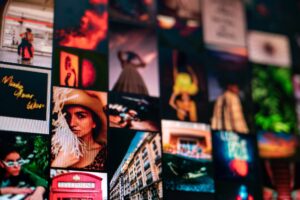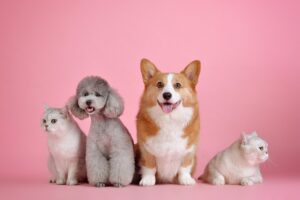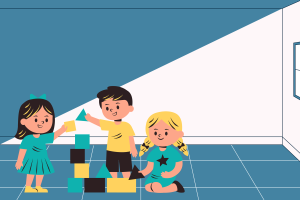
Shoplifting is not common. A new store in Bristol offers an outfit that allows shoplifting, including a coat with additional inside pockets and a scarf that has pouches to hold penny sweets.
Rachael Clerke wouldn’t survive as a shopkeeper. She is the creator of Transactionland and is interested in sparking discussion rather than making a profit.
Clerke will be trying to disrupt consumerist culture for nine hours starting Wednesday. Partly inspired by the search for a new normal following the first pandemic, Clerke’s “unusual out of town retail emporium” at Bricks (a charity located in St Anne’s House), was also inspired.
Clerke, who is 31 years old and hails from Edinburgh, says that there was a huge push to kickstart the economy and get back into the shops. It was like a gamble, when you could do anything if it meant that you would spend money. If you didn’t want to spend money, this thing would likely give you Covid and then you’d die.
Clerke has been collecting swimming pool inflatables to use as a backdrop for talks about inflation. The “Debt Gala”, an annual celeb jamboree, will feature cocktails such as “debtropolitan” and debt-themed Karaoke, as well as prizes for the most borrowed outfit.
Participants will have the opportunity to enjoy a daily “doughnut hour” during lunchtime. They will also be able to discuss doughnut economy, an Oxford economist’s visual framework for a healthy community. Shoplifters will have the opportunity to rob shops and evade shopkeepers at “Shoplift-o’Clock!”
Clerke wondered what shoppers would do if they were invited to steal items. Other than sweets, the potential loot includes more inflatables, scratchcards, and other products that can be traded and swapped.
“What if shoplifting was a radical form of commoning?” The artist says. Her approach is reminiscent of the 17th-century protest poem against the enclosure and enclosure of common land. “The law locks up man or woman, Who steals goose from the common, But lets the greater villain free, Who steals common from the goose.
Clerke’s large, wire-rimmed glasses are approximately the same size as her hoop earrings. She admits that she has more questions than answers. Clerke isn’t an economist nor an expert, and she is not promoting criminal behavior. She has always been fascinated with how things work and what might be different.
She says, “I’ve always felt like a pain in my arse.” “As a child, I would take something boring and ask my mother, “Mum, how did you make that digestive biscuit?” A few years later, I realized that this is all I do as an artist: trying to figure out how things work.
She has drawn inspiration from Piero manzoni among other avant-garde pioneers in Italy, best known for canning his own faeces as part of his 1961 “Merda d’Artista”, or Artist’s Shit. The equivalent weight of the tins in gold was what he valued them at $37. One of the tins was sold at an auction in 2016, setting a new record of EUR275,000.
Transactionland is the third in a 10-year series Clerke refers to as Businesses. It’s an “irreverent but earnest effort to understand, expose, and co-opt system of money, trade, and exchange.” She launched a subscription service in 2019. 50 subscribers were sent objects by mail every month for PS4 at a cost of PS4 per month. This included a pamphlet with all emails between Clerke, her estate agent, as well as the materials needed to build a fire.
In her second venture, the artist explored sharing ownership. She sold 461 shares in a cardboard cutout of herself measuring 6ft 3in. Each share cost PS5 each. The intention was to retain a majority 51% shareholding. The income will be used to build a bicycle for all shareholders.
Clerke states that she is eager to get people talking about money topics. “We don’t like to talk about money or economics, and if you’re being cynical (which I am), it is because banks and government have made it so that we don’t feel that we have the right to understand.”
Clerke is also struck by the government’s Covid response – to encourage spending in shops, restaurants and other retail outlets – as well as the wider economic inequality that the pandemic has contributed to, including the impact of inflation on food. She admits that many people are vulnerable and in need of help. “A lot” she says. It’s about creating a space for uncertainty and asking questions.




